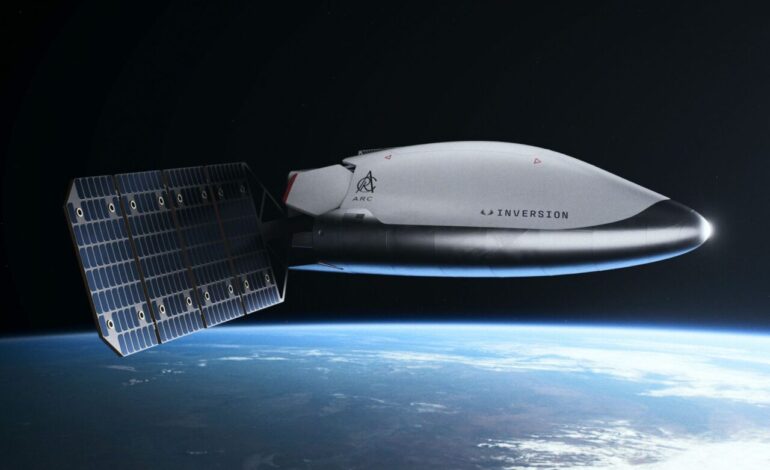Inversion Space Aims for One-Hour Global Cargo Delivery

A new capability for global logistics is taking shape as Inversion Space, a California-based startup founded in 2021, prepares to launch its innovative space-based delivery vehicle. The company aims to revolutionize cargo transportation by enabling deliveries from low Earth orbit to any location on Earth within one hour. With plans to deploy a constellation of reusable vehicles, Inversion Space unveiled its flagship vehicle, the Arc, which is designed to carry up to 500 pounds (225 kilograms) of supplies.
The Arc is a hybrid spaceplane and cargo capsule that stands 8 feet tall and spans 4 feet in width. Inversion Space intends to launch this vehicle by the end of 2026, building on insights gained from its earlier demonstration mission. The company seeks to establish a rapid delivery system that not only facilitates access to space but also enhances the speed and efficiency of cargo transport across the globe.
Revolutionizing Delivery from Space
The core concept behind the Arc is its ability to autonomously deliver cargo from orbit, positioning itself in low Earth orbit where it can store supplies for up to five years. When the need arises, the vehicle will reenter the atmosphere and land on Earth with the aid of parachutes. Equipped with a deorbit engine and an autonomously maneuverable parachute system, the Arc is engineered to withstand hypersonic speeds and connect with other spacecraft in orbit.
Inversion’s vision extends beyond mere delivery; the company is targeting military applications, particularly for the U.S. military. They believe that the Arc can significantly enhance defense readiness by facilitating the rapid delivery of essential cargo to remote or infrastructure-limited areas. In a statement on X, Inversion Space highlighted that “Arc reshapes defense readiness by enabling access to anywhere on Earth in under an hour – allowing for the rapid delivery of mission-critical cargo and effects to austere, infrastructure-limited, or denied environments.”
Learning from Initial Flights
Inversion Space’s journey began with the launch of its first vehicle, named Ray, in January 2023 as part of SpaceX’s Transporter-12 rideshare mission. This demonstration mission primarily tested the company’s in-orbit systems and reentry capabilities. While the mission was largely successful, Ray encountered a propulsion malfunction that prevented its return through the Earth’s atmosphere.
The company stated, “Our first spacecraft, Ray, has completed its mission on-orbit – serving as an extremely successful testbed for validating key technologies despite not attempting re-entry due to an on-orbit short circuit in a component preventing our deorbit engine from igniting.” Remarkably, nearly all systems on board Ray were developed in-house by a dedicated team of just 25 employees.
Despite its status as a newcomer in the space industry, Inversion Space aims to ramp up production significantly. The company plans to manufacture hundreds of Arc vehicles each year, with the goal of establishing a reliable constellation of cargo reentry spacecraft by 2028. The ambitious plans of Inversion Space illustrate a growing trend towards utilizing space for practical applications, positioning the company as a potential leader in the emerging field of space logistics.






